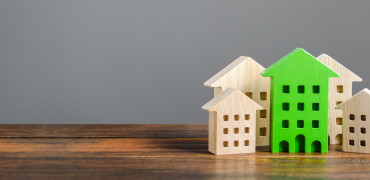I’m the annoying person who’s always telling people that turning down the air conditioning in their car to 18oC won’t make it work any faster when it’s 27oC outside. And they’re only wasting energy. I think of myself as a back-seat energy-saver.
I’m the same in hotel rooms. There’s no need to push that room controller button down to 20oC, even on a hot day. Working in the building services sector this long is a curse - I know too much!
But I am starting to wonder if we need to make more of an effort to educate people in the UK about how air conditioning works because an awful lot of them are starting to buy it for their homes.
The heat of 2022 has left many homeowners (and home-workers) determined not to suffer the discomfort of future UK heatwaves that climate forecasters have promised.
The industry needs to step up to educate householders about making good choices centred around comfort and efficiency
How many homes in the UK have air conditioning installed?
Currently, approximately 3% to 5% of UK homes have air conditioning installed. The UK Energy Research Centre predicts a potential increase to 32% of homes with air conditioning installed by 2050. Some estimates put this figure higher.
The problem with this growth is increased energy use.
Just as we’re trying to decarbonise our heating in the most energy efficient way possible, we could see a surge in summer electricity use that we haven’t had to allow for.
However, short of using legislation to ban residential air conditioning, private householders cannot be stopped from adopting the technology.
Air to air heat pumps: a good choice for homes
With this in mind (and I’ve said this in a previous blog), I think the best approach would be to relax the barriers to adopting air-to-air heat pumps and put them on the same footing as air-to-water models.
The fact that they can provide energy efficient heating and cooling makes them a good choice for homes and, based on the ERC projections, would undoubtedly boost the take-up of heat pump technology.
Another important point here is that while consumers in countries in southern Europe or the USA are used to buying and maintaining air conditioning equipment, we haven’t done it here in the UK.
Just like my complaints about a/c that’s turned too low, there are many aspects of air conditioning that users need to know.
Combine cooling and heating into one
For example, when non-experts hear ‘air conditioning’, they almost always conflate it with ‘cooling’. Yet an air conditioning system (including non-heat pump tech) will also supply heating.
So, this could be a way to reduce our use of natural gas boilers for heating in cooler months.
It’s a stretch to say that it would solve the domestic decarbonisation problem, but it would reduce the demand for gas.
Find the right HVAC installer
In addition, if we accept that more UK householders are putting in air conditioning, then they need to know what to look for in an installer.
Gas Safe works because we know we must look for that accreditation when we have a gas boiler fitted. We really need something like that for air conditioning installers too.
Poorly-fitted a/c systems will not only underperform but also use much more energy.
And new owners of these systems need to understand the importance of ongoing maintenance and regular checks to keep them operating effectively. Installers will doubtless play a key role in providing these services.
The industry needs to educate people about residential air conditioning
Climate scientists in the UK have warned that the ‘UK is no longer a cold country”. We can’t expect people to muddle through tropical nights of 20oC-plus with fans and some ice cubes.
Nor should we stand by and watch the cowboys ride in to take advantage of what is going to be a lucrative residential air conditioning boom.
That will not serve consumers, manufacturers or the climate.
Rather than disapproving of this choice, the industry needs to step up to educate householders about making good choices centred around comfort and efficiency.
Karen Fletcher is former editor of CIBSE Journal and Modern Building Services



